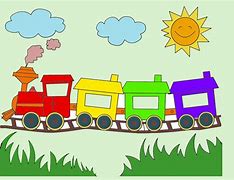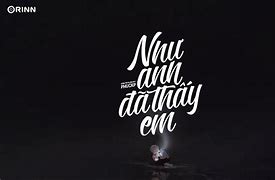
Ôn Tập Giữa Kì Anh 9
ĐỀ ÔN TẬP GIỮA HỌC KÌ II MÔN TIẾNG ANH 8NAME:……………………………………………………….A. Phonetics : /bl/ and /kl/, /sp/ and /st/, -al and - ousB. Vocabulary: unit 7,8,9 (environmental protections, shopping, Natural disasters).C. GrammarI. Complex sentences with adverb clauses of time. (Câu phức với mệnh đề trạng ngữ chỉ thời gian.)1. An adverb clause ( mệnh đề trạng ngữ)a. Định nghĩa: Là mệnh đề có chức năng ngữ pháp của một trạng ngữ (bổ nghĩa cho một mệnh đề khác).Các mệnh đề trạng ngữ được gọi là mệnh đề phụ (là những mệnh đề không diễn tả được một ý trọn vẹnvà không thể đứng độc lập.)2. An adverb clause of time (Mệnh đề trạng ngữ chỉ thời gian)a. Định nghĩa: là những mệnh đề bắt đầu bởi các liên từ chỉ thời gian như: while (trong khi, trong lúc),when (vào lúc, khi), one, as soon as (ngay khi mà), till, until (cho đến khi), by the time, before (trướckhi), after (sau khi), since (kể từ khi), as long as, so long as ( chừng nào mà),…b. Ví dụ:Ex1: When Mark was 13 years old, he went to Korea.(Khi Mark 13 tuổi, anh ấy đã đến Hàn Quốc.)Ex2: I will phone you as soon as I finish my work.(Tôi sẽ gọi cho bạn ngay khi tôi hoàn tất công việc của mình.)Ex3: My father was talking on the phone while my mother was helping my sister with her homework.(Bố tôi đang nói chuyện điện thoại trong khi mẹ tôi đang giúp em gái làm bài tập về nhà.)II. Past Continuous Tense ( Thì quá khứ tiếp diễn)Dùng để diễn tả một hành động xảy ra tại một thời điểm xác định trong quá khứ .At + Giờ + Thời gian trong quá khứ (at 10 o'clock last night,…)Công thức thì quá khứ tiếp diễnThể khẳng định: S + was/were + V-ingThể phủ định: S + was/were + not + V-ingThể nghi vấn: Was/were + S + V-ing?While và when:1. S + was/were + V-ing when S + V2/ed2. S + V2/ed while S + was/were + V-ingIII. The present simple ( thì hiện tại đơn)1.Trạng từ chỉ tần suất (Adverb of frequency)Tổng hợp các trạng từ tần suất sử dụng phổ biến trong tiếng AnhMức độ (%)Trạng từ tần suấtNghĩa của trạng từ100AlwaysLuôn luôn90 Usually80Normally/ Generally70Often/ Frequently50Sometimes30Occasionally10SeldomThỉnh thoảng lắm, tùy lúc5Hardly ever/ rarelyHiếm khi, ít có, bất thườngThường xuyênThông thường, theo lệThườngThỉnh thoảngThỉnh thoảng lắm, hoặc tùy lúc0NeverKhông bao giờ2.Present simple for future events ( thì hiện tại đơn mang ý nghĩa tương lai)Khi muốn đề cập đến những sự kiện trong thời gian biểu hoặc lịch trình một chuyến đi, lịch di chuyển củacác phương tiện công cộng, lịch chiếu phim, v.v… thì hiện tại đơn sẽ mang ý nghĩa tương lai.- The football match starts at 5 p.m.1I. Choose the word whose underlined part is pronounced differently from the others.1. A. loudB. neighbourC. hour2. A. priceB. spicyC. factory3. A. reduceB. forestC. release4. A. cuttingB. rubbishC. harmful5. A. cookedB. accomplishedC. gained6. A. honest B. outstandC. listen7. A. pollutedB. reducedC. washed8. A. washedB. wantedC. worked9. A. plantedB. workedC. watched10: A. coughedB. stoppedC. hatedII. Choose the option (A, B or C) to complete the following sentences11. What do you like about shopping at a ____________ shop ?A. convenientB. convenienceC. inconvenient12. When a ____________________ occurs, the hot gases and liquid rocks pours downhill.A. landslide B. tornado C. earthquake13. Do you like ____________ products?A. home-growingB. home-grewC. home-grown14. I _______ my brother by his real name.A. don't usually callB. don't call usuallyC. usually don't call15. The train __________________at 4:30, so we still have a lot of time.A. left B. leaving C. leaves16. While the other passengers ________ to the exits, Brian ___________ out of the window.A. were running – climbedB. ran - climbedC. run - was climbing17. You can_________________ bargain at a supermarket because the prices are fixed.A. never B. always C. sometimes18.The tourists cleared up the beach _________ they got back to the hotel.A. after B. while C. before 19. __________________ is a person who really likes going shopping.A. SingerB. ShopaholicC. Rescue worker20. A _____ is a violent storm with very strong winds that move in a circle.A. tornadoB.volcanoC. flood21. Tornado, storm, vocanic eruption, flood, landslide and earthquake are_______________A. gamesB. social mediaC. natural disasters22. - Peter : “The storm last night collapsed many buildings in my village.” - John: “_________”A. I'm sorry to hear that. B. I'm glad to hear that.C. It's kind of you to say so.23. Some people may be addicted _____ online shopping.A. at B. inC. to24. I __________________ dinner at 6 p.m yesterday.A. was havingB. hadC. are having25. The typhone ………………in my village at 9 o'clock last night.A. occurB. is occuringC. occuredD. was occuring26. She ……………… down the street when it began to rain.A. was walkingB. walksC. will walkD. is walking27. A: “Have you heard the news? A powerful earthquake and following tsunami hit the island ofSulawesi, Indonesia.”B: “_________”A. How beautiful!B. How terrible!C. No problem.D. I don't agree with you28. My grandmother doesn't……buy things at the supermarket. She prefers to buy at an open-air market.A. neverB. oftenC. alwaysD. rarely29. Tom: "Congratulations! You've passed the exam." ~ John: "_______ "A. No, I don't think soB. Many thanksC. Sorry, I don'tD. Not at all30. Her dad found some money while he ______________ her suitcase.A.packingB. packageC. are packingD. was packing2III. Supply the correct form of the words in the brackets.1. A _______________________spends too much time and money shopping. (SHOP)2. Lion is an_______________animal because of illegal wildlife trade. (DANGER)3.We think it's very ____________ that you're climbing the mountain alone. (DANGER)4.This law provides _____________ for threatened animals and plants. (PROTECT)5.Animals should be kept in their ____________________ habitats. (NATURE)6.Last night I watched a documentary about some ____________ species in Asia.(ENDANGER)IV. Choose the correct answer A, B, C, or D to fill in each numbered blank to complete thepassage.Light pollution is not (1) ____ dangerous as water or air pollution. Moreover, it is the type ofpollution that occurs more in cities than in rural areas. (2)______the past, we could sit out atnight and gaze at glittering stars in the sky and light from objects in the outer space. The realproblem is that it is very wasteful to apply light to almost everything at night. Millions of tons ofoil and coal are used to (3)____________ the power to light (4) ______ sky. Eye strain, loss ofvision and stress are what people may get from light (5) ________. Too much light at night can(6)_____ our eyes and also harm the hormones that help us to see things properly.1. A. asB. moreC. much2. A. atB. onC. in3. A. produce B. producesC. producing4. A. aB. anC. the5. A. pollute B. pollutingC. pollution6. A. helpB. harmlessC. harmV. Find out one mistake in each following sentence. (0.25/each)1. We go sometimes to the Gold City to watch fantasy. ABC2. The show is starting at 7 p.m tonight. ABC3. Someone was knocking at the door while I was doing the washing up.ABCD4. At 10 o'clock tomorrow, the new bookshop in the conrner is opening, let's go and visit it.ABCD5. We cannot prediction when earthquakes will happenABC6. I'm too busy today, so we go swimming on Sunday.ABCVI. Combine two sentences, using the conjunction in the brackets. (0.5)1. A serious road accident happened. We were waiting for the bus yesterday. (while)@ _____________________________________________________________2.Tom heard the warning of the storm. He went searching for his children. (As soon as)3@ _____________________________________________________________3. I was cleaning out my cupboards. I found these photos. (Rewrite the sentence, using “While”)@ _____________________________________________________________4. I have a habit of going jogging in the morning. ( Rewrite the sentence, using “ usually ”)@ _______________________________________________________________5.The fire brigade got the news of the forest fire. They came. (as soon as)@ _____________________________________________________________6. He has read the newspaper. I will borrow it from him. (as soon as)@ _____________________________________________________________7. I finish my study. I will take a walk in the park. (as soon as)@ _____________________________________________________________8. I saw an accident. I was waiting for my bus. (while)@ _____________________________________________________________9. He was making dinner. The frying pan caught on fire. (while)@ _____________________________________________________________10. I have a habit of reading English book before going to bed. ( usually)@ _______________________________________________________________VII. Rewrite each sentence so that it has the same meaning with the first one. (0.5/each)1. Nam likes playing sports with friends in his leisure time after school.→ Nam is keen on ............................................................................................................................2. It is not good for teenagers spend a lot of time surfing the internet nowadays.→ Teenagers shouldn't .........................................................................................................................3. My brother is interested in learning Maths online.→ My brother is keen on......................................................................................................................4. It isn't a good idea for you to put so much salt in the soup.→ You shouldn't .........................................................................................................................4
ĐỀ ÔN TẬP GIỮA HỌC KÌ II MÔN TIẾNG ANH 8NAME:……………………………………………………….A. Phonetics : /bl/ and /kl/, /sp/ and /st/, -al and - ousB. Vocabulary: unit 7,8,9 (environmental protections, shopping, Natural disasters).C. GrammarI. Complex sentences with adverb clauses of time. (Câu phức với mệnh đề trạng ngữ chỉ thời gian.)1. An adverb clause ( mệnh đề trạng ngữ)a. Định nghĩa: Là mệnh đề có chức năng ngữ pháp của một trạng ngữ (bổ nghĩa cho một mệnh đề khác).Các mệnh đề trạng ngữ được gọi là mệnh đề phụ (là những mệnh đề không diễn tả được một ý trọn vẹnvà không thể đứng độc lập.)2. An adverb clause of time (Mệnh đề trạng ngữ chỉ thời gian)a. Định nghĩa: là những mệnh đề bắt đầu bởi các liên từ chỉ thời gian như: while (trong khi, trong lúc),when (vào lúc, khi), one, as soon as (ngay khi mà), till, until (cho đến khi), by the time, before (trướckhi), after (sau khi), since (kể từ khi), as long as, so long as ( chừng nào mà),…b. Ví dụ:Ex1: When Mark was 13 years old, he went to Korea.(Khi Mark 13 tuổi, anh ấy đã đến Hàn Quốc.)Ex2: I will phone you as soon as I finish my work.(Tôi sẽ gọi cho bạn ngay khi tôi hoàn tất công việc của mình.)Ex3: My father was talking on the phone while my mother was helping my sister with her homework.(Bố tôi đang nói chuyện điện thoại trong khi mẹ tôi đang giúp em gái làm bài tập về nhà.)II. Past Continuous Tense ( Thì quá khứ tiếp diễn)Dùng để diễn tả một hành động xảy ra tại một thời điểm xác định trong quá khứ .At + Giờ + Thời gian trong quá khứ (at 10 o'clock last night,…)Công thức thì quá khứ tiếp diễnThể khẳng định: S + was/were + V-ingThể phủ định: S + was/were + not + V-ingThể nghi vấn: Was/were + S + V-ing?While và when:1. S + was/were + V-ing when S + V2/ed2. S + V2/ed while S + was/were + V-ingIII. The present simple ( thì hiện tại đơn)1.Trạng từ chỉ tần suất (Adverb of frequency)Tổng hợp các trạng từ tần suất sử dụng phổ biến trong tiếng AnhMức độ (%)Trạng từ tần suấtNghĩa của trạng từ100AlwaysLuôn luôn90 Usually80Normally/ Generally70Often/ Frequently50Sometimes30Occasionally10SeldomThỉnh thoảng lắm, tùy lúc5Hardly ever/ rarelyHiếm khi, ít có, bất thườngThường xuyênThông thường, theo lệThườngThỉnh thoảngThỉnh thoảng lắm, hoặc tùy lúc0NeverKhông bao giờ2.Present simple for future events ( thì hiện tại đơn mang ý nghĩa tương lai)Khi muốn đề cập đến những sự kiện trong thời gian biểu hoặc lịch trình một chuyến đi, lịch di chuyển củacác phương tiện công cộng, lịch chiếu phim, v.v… thì hiện tại đơn sẽ mang ý nghĩa tương lai.- The football match starts at 5 p.m.1I. Choose the word whose underlined part is pronounced differently from the others.1. A. loudB. neighbourC. hour2. A. priceB. spicyC. factory3. A. reduceB. forestC. release4. A. cuttingB. rubbishC. harmful5. A. cookedB. accomplishedC. gained6. A. honest B. outstandC. listen7. A. pollutedB. reducedC. washed8. A. washedB. wantedC. worked9. A. plantedB. workedC. watched10: A. coughedB. stoppedC. hatedII. Choose the option (A, B or C) to complete the following sentences11. What do you like about shopping at a ____________ shop ?A. convenientB. convenienceC. inconvenient12. When a ____________________ occurs, the hot gases and liquid rocks pours downhill.A. landslide B. tornado C. earthquake13. Do you like ____________ products?A. home-growingB. home-grewC. home-grown14. I _______ my brother by his real name.A. don't usually callB. don't call usuallyC. usually don't call15. The train __________________at 4:30, so we still have a lot of time.A. left B. leaving C. leaves16. While the other passengers ________ to the exits, Brian ___________ out of the window.A. were running – climbedB. ran - climbedC. run - was climbing17. You can_________________ bargain at a supermarket because the prices are fixed.A. never B. always C. sometimes18.The tourists cleared up the beach _________ they got back to the hotel.A. after B. while C. before 19. __________________ is a person who really likes going shopping.A. SingerB. ShopaholicC. Rescue worker20. A _____ is a violent storm with very strong winds that move in a circle.A. tornadoB.volcanoC. flood21. Tornado, storm, vocanic eruption, flood, landslide and earthquake are_______________A. gamesB. social mediaC. natural disasters22. - Peter : “The storm last night collapsed many buildings in my village.” - John: “_________”A. I'm sorry to hear that. B. I'm glad to hear that.C. It's kind of you to say so.23. Some people may be addicted _____ online shopping.A. at B. inC. to24. I __________________ dinner at 6 p.m yesterday.A. was havingB. hadC. are having25. The typhone ………………in my village at 9 o'clock last night.A. occurB. is occuringC. occuredD. was occuring26. She ……………… down the street when it began to rain.A. was walkingB. walksC. will walkD. is walking27. A: “Have you heard the news? A powerful earthquake and following tsunami hit the island ofSulawesi, Indonesia.”B: “_________”A. How beautiful!B. How terrible!C. No problem.D. I don't agree with you28. My grandmother doesn't……buy things at the supermarket. She prefers to buy at an open-air market.A. neverB. oftenC. alwaysD. rarely29. Tom: "Congratulations! You've passed the exam." ~ John: "_______ "A. No, I don't think soB. Many thanksC. Sorry, I don'tD. Not at all30. Her dad found some money while he ______________ her suitcase.A.packingB. packageC. are packingD. was packing2III. Supply the correct form of the words in the brackets.1. A _______________________spends too much time and money shopping. (SHOP)2. Lion is an_______________animal because of illegal wildlife trade. (DANGER)3.We think it's very ____________ that you're climbing the mountain alone. (DANGER)4.This law provides _____________ for threatened animals and plants. (PROTECT)5.Animals should be kept in their ____________________ habitats. (NATURE)6.Last night I watched a documentary about some ____________ species in Asia.(ENDANGER)IV. Choose the correct answer A, B, C, or D to fill in each numbered blank to complete thepassage.Light pollution is not (1) ____ dangerous as water or air pollution. Moreover, it is the type ofpollution that occurs more in cities than in rural areas. (2)______the past, we could sit out atnight and gaze at glittering stars in the sky and light from objects in the outer space. The realproblem is that it is very wasteful to apply light to almost everything at night. Millions of tons ofoil and coal are used to (3)____________ the power to light (4) ______ sky. Eye strain, loss ofvision and stress are what people may get from light (5) ________. Too much light at night can(6)_____ our eyes and also harm the hormones that help us to see things properly.1. A. asB. moreC. much2. A. atB. onC. in3. A. produce B. producesC. producing4. A. aB. anC. the5. A. pollute B. pollutingC. pollution6. A. helpB. harmlessC. harmV. Find out one mistake in each following sentence. (0.25/each)1. We go sometimes to the Gold City to watch fantasy. ABC2. The show is starting at 7 p.m tonight. ABC3. Someone was knocking at the door while I was doing the washing up.ABCD4. At 10 o'clock tomorrow, the new bookshop in the conrner is opening, let's go and visit it.ABCD5. We cannot prediction when earthquakes will happenABC6. I'm too busy today, so we go swimming on Sunday.ABCVI. Combine two sentences, using the conjunction in the brackets. (0.5)1. A serious road accident happened. We were waiting for the bus yesterday. (while)@ _____________________________________________________________2.Tom heard the warning of the storm. He went searching for his children. (As soon as)3@ _____________________________________________________________3. I was cleaning out my cupboards. I found these photos. (Rewrite the sentence, using “While”)@ _____________________________________________________________4. I have a habit of going jogging in the morning. ( Rewrite the sentence, using “ usually ”)@ _______________________________________________________________5.The fire brigade got the news of the forest fire. They came. (as soon as)@ _____________________________________________________________6. He has read the newspaper. I will borrow it from him. (as soon as)@ _____________________________________________________________7. I finish my study. I will take a walk in the park. (as soon as)@ _____________________________________________________________8. I saw an accident. I was waiting for my bus. (while)@ _____________________________________________________________9. He was making dinner. The frying pan caught on fire. (while)@ _____________________________________________________________10. I have a habit of reading English book before going to bed. ( usually)@ _______________________________________________________________VII. Rewrite each sentence so that it has the same meaning with the first one. (0.5/each)1. Nam likes playing sports with friends in his leisure time after school.→ Nam is keen on ............................................................................................................................2. It is not good for teenagers spend a lot of time surfing the internet nowadays.→ Teenagers shouldn't .........................................................................................................................3. My brother is interested in learning Maths online.→ My brother is keen on......................................................................................................................4. It isn't a good idea for you to put so much salt in the soup.→ You shouldn't .........................................................................................................................4
Ngữ pháp tiếng Anh lớp 9 – Unit 2:
– Thể bị động được cấu tạo bởi hai phần là trợ động từ “to be” với động từ quá khứ phân từ hai.
– Nghĩa của câu bị động là: được làm gì, bị làm gì
Eg: My house was built 5 years ago
(Nhà tôi được xây vào 5 năm trước)
Eg: I was hit by a neighbor’s car
(Tôi bị xe của bác hàng xóm đụng phải)
– Áp dụng công thức câu bị động này vào thì hiện tại tiếp diễn ta có:
S + BE + being + V past participle + O
Eg: A new hospital is being built in this city
(Một bệnh viện mới đang được xây ở thành phố này)
– Áp dụng công thức câu bị động vào thì hiện tại hoàn thành ta được:
S + HAVE/HAS BEEN + V past participle + O
Eg: Some new products have been invented by Apple
(Một vài sản phẩm đang được Apple phát minh)
S + HAVE/HAS + V past participle + O
– Chức năng thứ nhất: Thì hiện tại hoàn thành diễn tả một hành động trong quá khứ mà thời gian không xác định (không rõ thời gian)
(Chúng tôi đã đọc những cuốn sách này)
– Chức năng thứ hai: Thì hiện tại hoàn thành diễn tả một hành động xảy ra trong quá khứ còn tiếp diễn tới hiện tại
Eg: We have worked here since 1999
(Chúng tôi đã làm việc ở đây từ năm 1999)
– Dấu hiệu nhận biết thì hiện tại hoàn thành:Trong câu có từ: “already, yet, ever, since, for + period of time, lately, recently, so far, up to now, till now, up to the present, before”




















